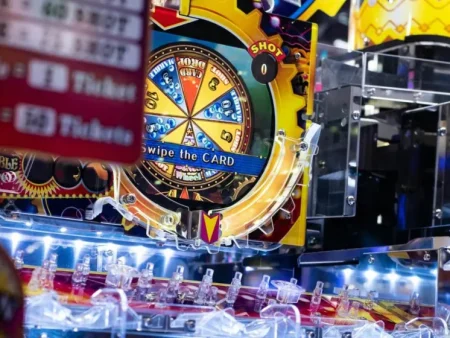President’s Announcement
President Marcos announced an immediate ban on Philippine Offshore Gaming Operators (POGOs) during his State of the Nation Address (SONA), citing their “grave abuse and disrespect” of laws as the primary reasons. He emphasized that POGO operations have led to significant social and economic issues, necessitating firm action. Marcos highlighted the extensive legal and economic implications, noting POGOs’ involvement in illegal activities such as financial scamming, money laundering, and human trafficking. He instructed the Philippine Amusement and Gaming Corporation (PAGCOR) to cease all POGO operations by the year’s end and develop a plan to find alternative employment for displaced workers.Legislative and Public Reaction
Support from Lawmakers
The announcement received widespread support from lawmakers. Senators and representatives lauded the president’s decision, emphasizing that POGOs have been a source of serious criminal activities in the country. Senator Sherwin Gatchalian and Senator Risa Hontiveros, among others, praised the move, calling it a significant victory against organized crime.
Economic and Social Impact
Business organizations and economic groups also expressed their support for the ban. They noted that the removal of POGOs could lead to a decrease in criminal activities and improve diplomatic relations with countries like China, which has been vocal about the negative impacts of POGOs. The phased approach to ceasing operations was seen as a balanced measure to mitigate economic disruptions while addressing the underlying issues.
Enforcement and Future Outlook
In accordance with President Marcos’ directive, law enforcement and regulatory bodies have been tasked with ensuring the immediate and effective implementation of the POGO ban. The Philippine Amusement and Gaming Corporation (PAGCOR), along with other relevant agencies, is developing a comprehensive plan to wind down POGO operations. This plan includes managing the transition for workers affected by the ban and addressing any potential economic fallout. The focus is on a seamless and orderly cessation of POGO activities, minimizing disruption while ensuring compliance with the new regulations.
Long-term Benefits
The long-term benefits of the POGO ban are expected to be substantial. By eliminating POGOs, the government aims to significantly reduce criminal activities associated with these operations, thereby enhancing national security and societal well-being. The decisive action taken by the government underscores its commitment to upholding the rule of law and protecting its citizens from the adverse effects of illegal gambling operations. This ban marks a significant policy shift in the Philippines, aimed at addressing widespread criminality and improving the socio-economic landscape. The government’s decision, supported by lawmakers and business communities, highlights a unified stance against the illegal activities linked to POGOs. This move is expected to bring about positive changes in the country’s legal, economic, and social environment, reinforcing the government’s commitment to the welfare and security of its citizens.
The government’s proactive approach is anticipated to yield numerous benefits over time. By removing POGOs, the Philippines expects to see a decline in associated criminal activities such as money laundering and human trafficking. This action also sends a strong message about the country’s dedication to maintaining law and order. Additionally, the ban may lead to improved international relations, particularly with neighboring countries that have expressed concerns about POGO-related activities. Economically, the government is working to mitigate the impact on displaced workers through various employment transition programs, ensuring that the workforce can adapt to new opportunities. The overall expectation is a more stable, secure, and prosperous Philippines, free from the negative influences of illegal gambling operations.
Table: Implementation and Long-term Benefits of POGO Ban
| Aspect | Details |
|---|---|
| Implementation Measures | Immediate action by law enforcement and regulatory bodies to ensure compliance. |
| PAGCOR’s Role | Developing a comprehensive plan to wind down operations and manage worker transitions. |
| Economic Fallout | Addressing potential economic disruptions through strategic planning. |
| Long-term Benefits | Significant reduction in criminal activities, enhanced national security, and societal well-being. |
| Policy Shift | Marking a significant policy shift to improve the socio-economic landscape. |
| International Relations | Improved relations with neighboring countries concerned about POGO-related activities. |
| Economic Adaptation | Employment transition programs to support displaced workers. |
| Overall Expectation | A stable, secure, and prosperous Philippines free from illegal gambling operations. |
In conclusion, the POGO ban represents a major step towards a safer and more orderly Philippines. The comprehensive implementation measures and anticipated long-term benefits underscore the government’s dedication to legal and economic reform. This decision, supported by a broad coalition of lawmakers and business leaders, promises to bring about significant positive changes in the nation’s security, economy, and overall quality of life.












